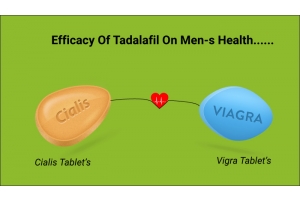4 Common Causes of Impotence
What Is Impotence?
Impotence is a term that Constantly affects a person’s mobility to achieve or preserve an erection, or ability to achieve ejaculation. It’s a called as erectile dysfunction (ED).
There can be several contributing factors for impotence. These include both conscientious and physical disorders. According to The Merck Manual, an estimated 50 percent of men ages 40 to 70 experience some ED at one time or another. The danger of impotence improve with age.
It’s also been note down that men with more teaching are less likely to experience impotence, May be because they have healthier lifestyles on average.
Impotence repeatedly has a negative affect on sex life, and can cause additional stress, depression, and low self-esteem.
Explanation the most common contingent causes can aid a person identify why they may be experiencing the condition.
Endocrine Diseases
The body’s endocrine system cause hormones that constrain metabolism, sexual function, reproduction, mood, and much more.
Diabetes is an example of an endocrine disease that can reason a person to experience impotence. Diabetes affects the body’s ability to applied the hormone insulin. One of the adversed effects associated with chronic diabetes is nerve impairment. This affects penis sensations. Other confusion associated with diabetes are impaired blood flow and hormone levels. Both of these affecting factors can subscription to impotence.
Neurological and Nerve Disorders
Some of neurologic conditions can improve the risk for impotence. Nerve conditions affect the brain’s ability to combine with the reproductive system. This can detain a person from accomplish an erection.
People who have suffer prostate gland surgery can also facing nerve damage that causes impotence.
Who are long distance bicycle riders can also experience provisional impotence. This is because repated pressure on the buttocks and genitals can affect the function of the nerves.
Cardiac-Related Conditions
Conditions that interact the heart and its ability to pump blood well can cause impotence.
Except enough blood flow to the penis, a person can’t achieve an erection. Atherosclerosis, a term that affect the blood vessels to become clogged, can cause impotence.
High cholesterol and hypertension are also associated with increased risks for impotence.
Lifestyle Factors and Emotional Disorders
To substantiate an erection, a person must first go through what’s known as an sensation phase. This phase can be an emotional reflection. If a person has an emotional disorder, this interact their ability to become sexually excited.
Depression and anxiety are combined with increased risk for impotence. Depression is a feeling of sadness, loss of hope, or helplessness. Fatigue related to depression can also cause impotence.
Performance anxiety can be another cause of erectile dysfunction. If a person wasn’t able to achieve an erection in the past, he may fright he won’t be able to reach an erection in the future. A person may also find he can’t achieve an erection with a certain partner. Someone with ED contain to performance anxiety may be able to have full erections when masturbating or when sleeping, still to he isn’t able to achieved an erection during intercourse.
Missuse of drugs like cocaine and amphetamines can also reason impotence. Alcohol abuse and alcoholism can affect a person’s ability to achieve or maintain an erection as well. See your doctor if you questionable that you may have a substance abuse problem.








